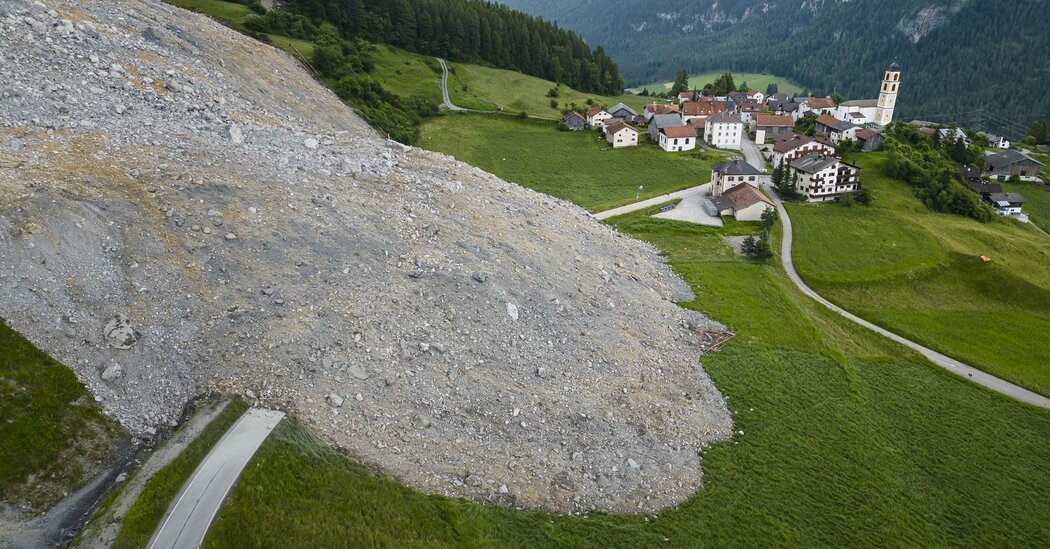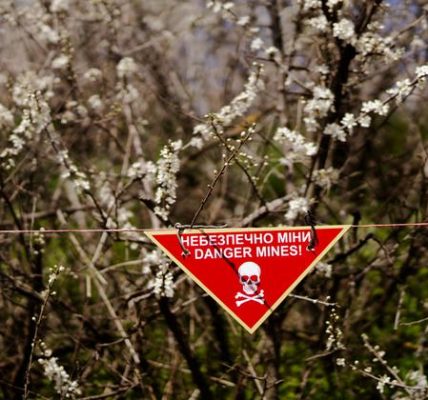
The Latest
After decades of threatening to tear off and plummet down the slope, obliterating the homes below, the mountainside near the village of Brienz, in central Switzerland, finally collapsed. Geologists had predicted in May that the long-feared landslide was imminent, and the authorities evacuated the village’s roughly 85 residents. On Friday, the experts were proved right: A portion of the mountain gave way.
Well, partly right, at least. Luckily for Brienz’s inhabitants, the predicted erasure of their village was narrowly avoided. The roughly 50 million cubic feet of rock and debris that tore free stopped just short of the village, coming to rest yards from the first building facing the slopes: the schoolhouse. The only structure caught in the downfall was a small shed a bit farther from the village.
“The most beautiful part is — something we had not really anticipated — it came down without damaging the village,” said Christian Gartmann, a spokesman for the Albula district, which includes Brienz.
Residents in surrounding villages said that they heard the rolling of rocks and debris on Thursday between 11 p.m. and midnight, but it was not until the morning that the landslide could be assessed. There had been some indication that the fracturing was gathering pace, with geological probes that had been set up to monitor the mountainside registering a significant increase in the volume of rocks tumbling down.
Early estimates suggest that two-thirds to three-quarters of the portion of mountain that geologists said was at risk had fallen toward Brienz. On Friday, geologists were flown over the area to assess the situation. Further surveying will be done with drones and ground-based measuring equipment.
What’s next
Depending on what the geologists find, the outcome could be good news for the villagers. When they were evacuated, most would have feared that the mountainside’s collapse would obliterate their homes.
If the experts rule that the mountain poses no further danger to residents, they will be allowed to move back in, Mr. Gartmann said, noting that the “chances of that happening are once again very good.”
One evacuated resident of Brienz, Renato Liesch, went to the area to see for himself what damage the landslide had wrought. “When you see how much made it down the hill, it’s just gigantic,” he said in a telephone interview.
Mr. Liesch said he was relieved that the collapse had finally happened but expressed worry that parts of the mountain left behind could still dislodge.
“At this point, I’m not sure we’ll be able to move back before next spring,” he said. Nonetheless, he acknowledged, “It could have been so much worse.”



